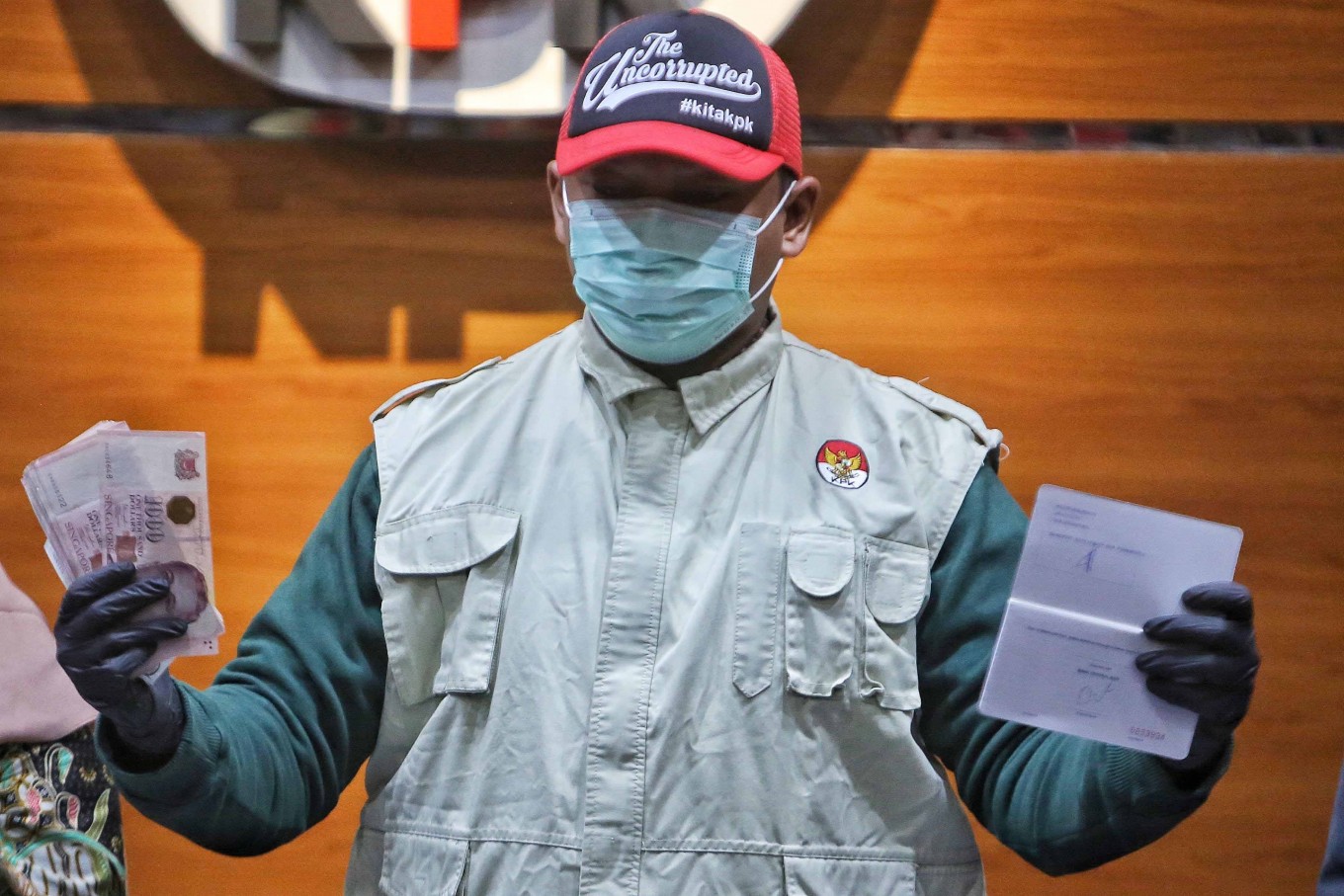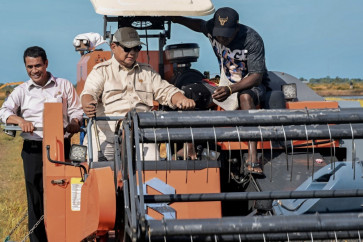Popular Reads
Top Results
Can't find what you're looking for?
View all search resultsPopular Reads
Top Results
Can't find what you're looking for?
View all search resultsInto the unknown
Huge challenges stand between the Corruption Eradication Commission (KPK) and resolution of the case, not only because of internal problems within the antigraft body, but also the semblance of a conflict of interest on the part of the ruling party, the PDI-P.
Change text size
Gift Premium Articles
to Anyone
 A Corruption Eradication Commission (KPK) officer shows evidence related to the alleged bribery case involving Wahy Setiawan, a General Elections Commission (KPU) member, and Indonesian Democratic Party of Struggle (PDI-P) politician Harun Masiku on Jan. 9 at the KPK office in Jakarta. (JP/Seto Wardhana/JP/Seto Wardhana)
A Corruption Eradication Commission (KPK) officer shows evidence related to the alleged bribery case involving Wahy Setiawan, a General Elections Commission (KPU) member, and Indonesian Democratic Party of Struggle (PDI-P) politician Harun Masiku on Jan. 9 at the KPK office in Jakarta. (JP/Seto Wardhana/JP/Seto Wardhana)
A
fter over a month, the investigation into a bribery case involving former General Elections Commission (KPU) member Wahyu Setiawan and Indonesian Democratic Party of Struggle (PDI-P) politician Harun Masiku has raised more questions than have been answered.
Huge challenges stand between the Corruption Eradication Commission (KPK) and resolution of the case, not only because of internal problems within the antigraft body, but also the semblance of a conflict of interest on the part of the ruling party, the PDI-P.
The probe into the high-profile case took a new twist after KPK leaders returned two police officers and two state prosecutors, who had been involved in the arrest of Wahyu and other suspects, back to the National Police and Attorney General’s Office (AGO), respectively, even though their assignments in the commission had not yet ended. One of the police officers, for example, was not due to complete his stint at the KPK until September.
Previously Law and Human Rights Minister Yasonna Laoly had stirred controversy, which many observers regarded as a serious violation of the ministerial code of ethics, for appearing in a press conference in defense of Harun, who still remains at large. Yasonna, a PDI-P member, however, has so far not received any rebuke from his boss, President Joko “Jokowi” Widodo, who is also a PDI-P member. Fellow Cabinet members have also refrained from criticizing Yasonna.
Yasonna also came under fire for insisting that Harun had not returned to Indonesia since leaving for Singapore on Jan. 6, although a Tempo investigation found that the PDI-P politician had in fact visited his home in the South Sulawesi regency of Gowa upon arrival from overseas. Yasonna was proved wrong and later dismissed the director general of immigration, Ronny Sompie, for failing to provide him with the correct information.
Regardless, Yasonna’s bravado and the lack of any consequences for his actions have sent the worrying message that the government tolerates this sort of unorthodox behavior. The principle of good governance that President Jokowi has oftentimes proclaimed has been reduced to mere rhetoric in this very case.
Which leads us to the next question — what is it about Harun that a minister is prepared to risk his reputation to jump to his defense and that law enforcers, despite the hi-tech devices and skilled human resources at their disposal, have failed to locate him? Meanwhile, fears about the global coronavirus epidemic have to some extent distracted public attention from the bribery case.
Nevertheless, the KPK leaders have been efficient in providing updates. Since the arrest of Wahyu they have held talks with House of Representatives leaders three times behind closed doors, which only goes to show the political nuances of the case.
The KPK will put its credibility on the line if it cannot capture Harun as soon as possible. His arrest will also ensure his safety, which his family has expressed worries about given that he is a key witness in the case. The longer his whereabouts remain unknown, the more difficult it will be to resolve the bribery scandal.









